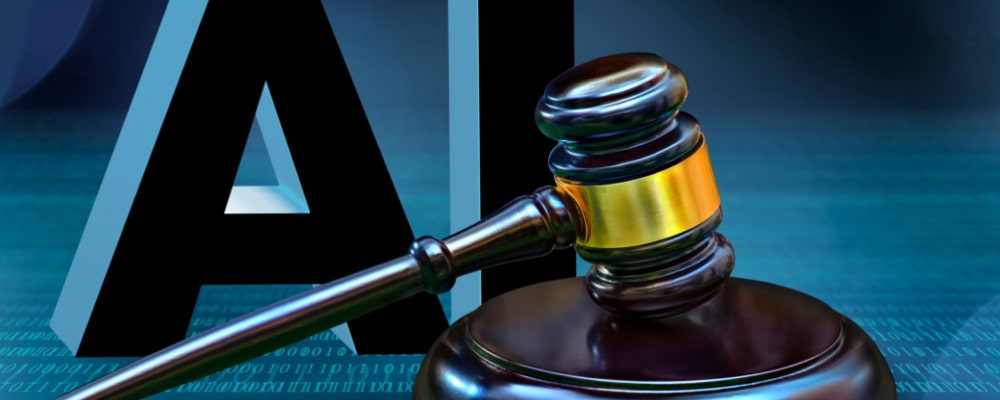Artificial Intelligence Law: Balancing Innovation and Regulation

Artificial Intelligence (AI) has become a prominent topic of discussion in recent years. Its potential to revolutionize industries, improve efficiency, and solve complex problems is undeniable. However, the rapid advancement of AI technology has also raised concerns about its ethics, legality, and appropriate usage. To address these challenges and ensure the responsible deployment of AI systems, there is an emerging field known as "AI Law." This article dives into the concept of AI law by explaining its definition, key principles, and current legal frameworks around the world.
Defining Artificial Intelligence Law
AI law refers to the set of legal rules and regulations that aim to govern various aspects related to artificial intelligence technologies. It also involves how they are developed or deployed to mitigate risks associated with their use. This type of law encompasses areas such as data privacy protection, data governance, cybersecurity, intellectual property rights enforcement, fairness, and transparency. By establishing clear guidelines for development and deployment, AI law seeks to strike a balance between fostering innovation while also ensuring compliance with ethical standards. This includes creating safety measures and addressing potential societal implications.
Principles Guiding Artificial Intelligence Law
Transparency
One fundamental principle is that any organization deploying or developing an AI system should be transparent about how it operates. This includes disclosing information regarding factors used for decision-making, datasets utilized, and overall capabilities. This approach ensures accountability and stakeholder trust. It also empowers those affected by automated decisions, such as in education, hiring, and policing.
Accountability
The concept of accountability holds organizations responsible for any negative consequences caused by their deployed systems. Even though AIs are designed based on algorithms, reliance on them cannot exempt humanity from social responsibilities. Instances like biased hiring practices or autonomous vehicle accidents highlight ethical and legal questions surrounding accountability, which AI law endeavors to address.
Privacy
Data privacy is a cornerstone of AI law. Preserving individuals' rights about their personal information often requires massive amounts of data for training purposes. Implementing effective safeguards to prevent unauthorized access and misuse, and to protect the individual's right to his or her data, is critical.
Fairness and Non-Discrimination
Due consideration must be given to ensure that AI systems do not perpetuate or amplify societal biases in areas like gender, race, beliefs, or any other protected characteristics. Applications must be robustly tested during development, involving representative datasets, reducing biases, and avoiding discriminatory decision-making.
Human Oversight
Recognizing the risks associated with completely autonomous decision-making, AI law emphasizes human oversight over automated processes. AIs should augment human capabilities rather than replace them. Areas such as medical diagnoses, judicial decisions, or warfare must exercise caution when solely relying on algorithms. There must be a legal framework in place for their use, taking into account ethical requirements.
Current Legal Frameworks
Given the relatively early stage of AI technology, legal frameworks vary across countries. The European Union has been proactive in addressing AI ethics and regulation. The General Data Protection Regulation establishes guidelines on data processing, which provides standards for deploying automated decision-making tools. Relevant authorities worldwide are grappling with striking a balance between safeguarding societal interests and encouraging AI innovation by enacting laws specific to their jurisdictions.
Future Prospects
As technology continues to advance, the regulation surrounding AI will evolve. A responsible and forward-thinking approach is essential. Making AI law adaptable will help it keep up with the rapid pace of technological advancements. Governments, courts, academia, and industry experts must work in tandem. Not only should legislative bodies enact robust frameworks, but they should also collaborate with technologists to understand emerging technologies. Involving multidisciplinary experience can ensure a balanced legal analysis when addressing complex challenges associated with artificial intelligence.
Artificial intelligence law provides a necessary framework for mitigating risks, ensuring accountability, and establishing ethical guidelines in an era where AI technologies are rapidly evolving. By incorporating principles such as transparency, accountability, privacy, fairness, and human oversight, international authorities navigate the challenges posed by artificial intelligence. Technical proficiency combined with continuous adaption in response to emerging developments will allow us to strike a balance between harnessing AI's potential while minimizing risks and maximizing its positive impact on society. With ongoing efforts, multidimensional collaborations, and agile legal responses, it is possible to embrace the innovations brought forth by AI without leaving uncharted territories or vulnerable populations behind.















